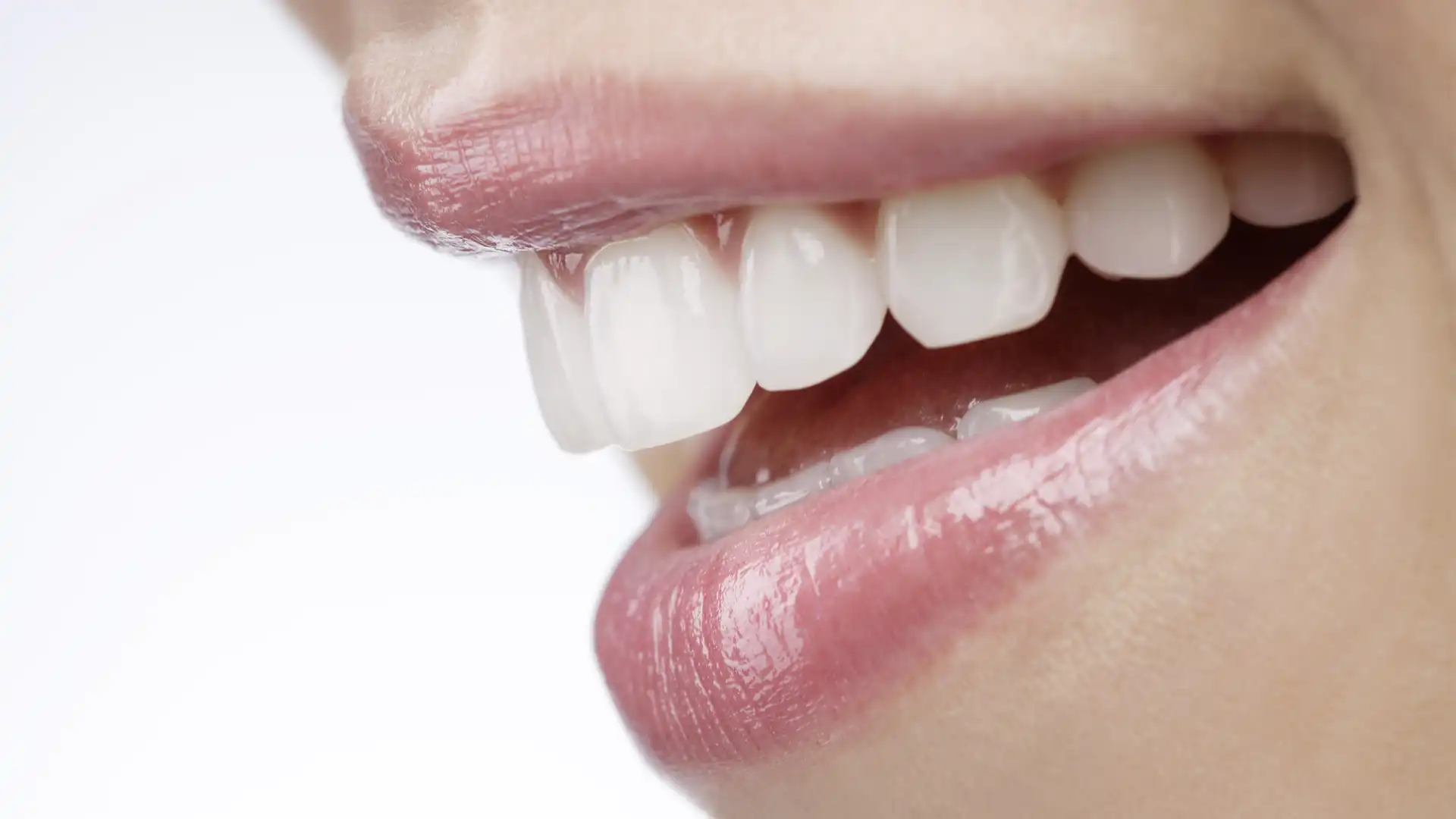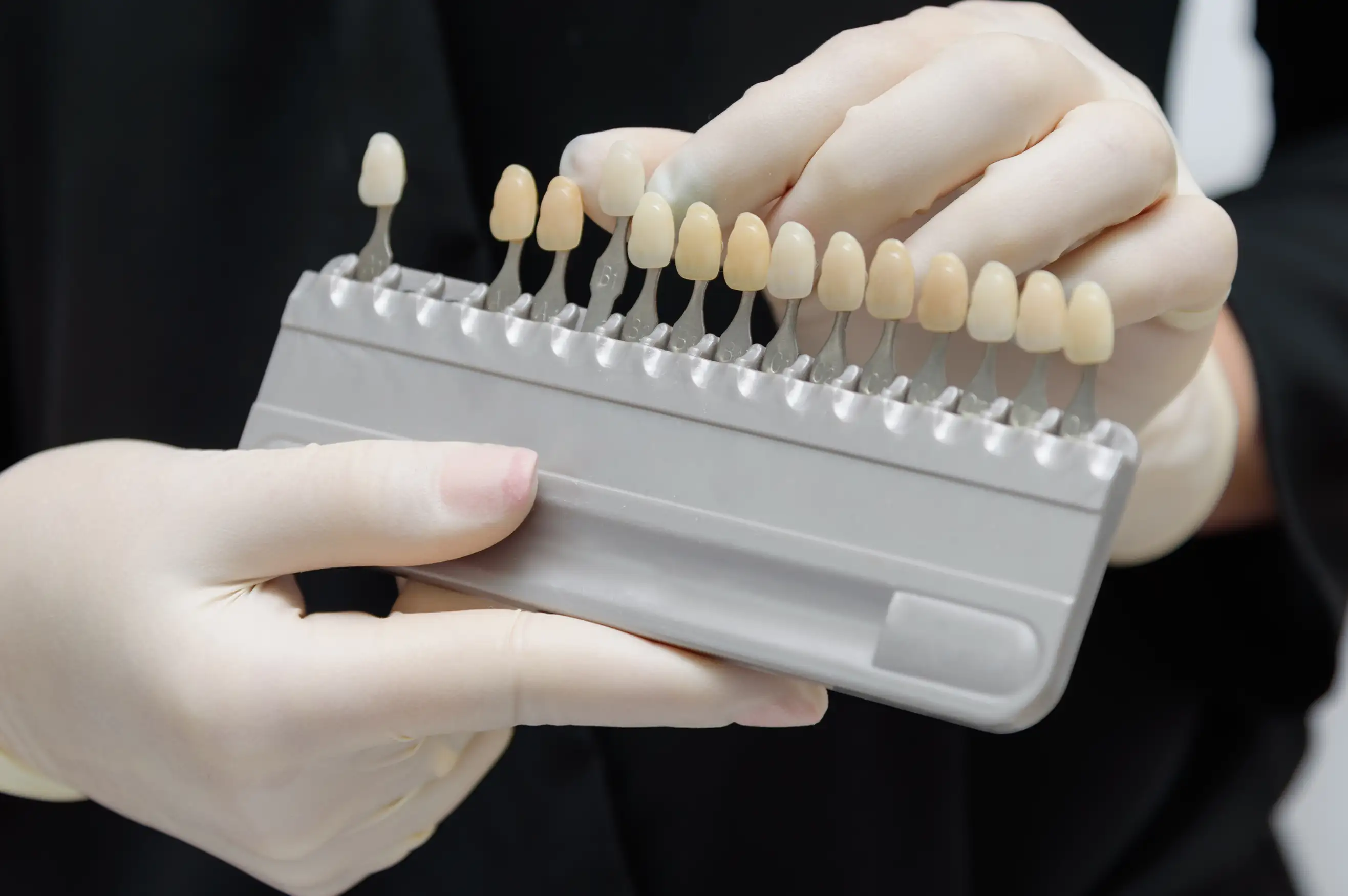Everything You Need to Know About Dental Veneers
Everything You Need to Know About Dental Veneers
Learn what dental veneers are, how they work, their benefits, cost, risks, and how long veneers last — for a confident, natural-looking smile.
Table of Contents:
What Are Dental Veneers?
Dental veneers are thin, custom-made shells designed to cover the front surface of your teeth. They are a popular cosmetic dentistry option for people who want to improve the shape, color, and alignment of their teeth without undergoing extensive dental procedures.
Most veneers are made from either porcelain or composite resin. These materials are shaped and colored to match your natural teeth, then bonded permanently using dental cement. Porcelain veneers are known for their durability and resistance to stains, while composite veneers are more budget-friendly and can often be applied in a single visit.
Unlike crowns, which cover the entire tooth, veneers only cover the front-facing surface. This makes them a minimally invasive dental restoration that preserves most of your natural tooth structure. When done properly, veneers can dramatically improve the appearance of your smile while still looking completely natural.
Read More: Veneers in Turkey
Who Can Benefit from Veneers for Teeth?
Veneers are often chosen by people who want a simple yet effective way to improve their smile. They can address a variety of cosmetic issues, including:
-
Discolored teeth caused by stains, medication, or old fillings.
-
Chipped, cracked, or worn teeth that make your smile uneven.
-
Gaps or spaces between teeth.
-
Slight misalignment or unevenly shaped teeth.
-
Teeth that are too small or pointed compared to others.
While veneers are primarily cosmetic, they can also add a thin layer of protection to slightly damaged enamel. For many people, the biggest motivation is the confidence boost that comes from having a symmetrical, bright smile.
However, veneers aren’t right for everyone. They may not be suitable for people with significant tooth decay, gum disease, or very little enamel left. Your dentist will evaluate your oral health before recommending veneers or another option like crowns or bonding.

Types of Dental Veneers
When it comes to veneers for teeth, you have two main types to choose from — each with its pros and cons.
Porcelain Veneers
Porcelain veneers are made from high-quality ceramic materials that mimic the translucency and gloss of natural enamel. They are custom-made in a dental lab and typically take two or more visits to complete.
Pros:
-
Highly durable (can last 10–15 years).
-
Stain-resistant.
-
Natural-looking and reflective like real teeth.
Cons:
-
More expensive.
-
Require slight enamel removal.
-
Cannot be repaired easily if damaged.
Composite Veneers
Composite veneers are made from a tooth-colored resin material applied directly to the tooth. They can often be completed in a single appointment.
Pros:
-
More affordable than porcelain veneers.
-
Quick application process.
-
Can be repaired or adjusted easily.
Cons:
-
Shorter lifespan (about 5–7 years).
-
More prone to staining and chipping.
Read More: Hollywood Smile in Turkey
The Dental Veneer Procedure: Step-by-Step
Getting dental veneers is usually a painless, straightforward process that happens over two or three visits.
1. Consultation and Planning
Your journey begins with a consultation. The dentist examines your teeth, discusses your goals, and may take X-rays or impressions. You’ll also choose the veneer material — porcelain or composite — depending on your needs and budget.
2. Tooth Preparation
A thin layer of enamel (usually less than one millimeter) is gently removed from the front of each tooth. This makes space for the veneer and ensures a natural fit. The dentist then takes a digital scan or mold of your teeth.
3. Temporary Veneers (if applicable)
For porcelain veneers, temporary veneers may be placed while your permanent ones are being fabricated in a dental lab.
4. Bonding
Once the veneers are ready, your dentist checks their color, shape, and fit. Each veneer is then permanently bonded to your tooth using dental cement and cured with a special light that hardens the adhesive.
Afterward, your dentist will polish the veneers and make any necessary adjustments for comfort and alignment.
How Long Do Veneers Last?
With proper care, porcelain veneers typically last 10 to 15 years, and composite veneers last 5 to 7 years. The longevity largely depends on your oral hygiene habits and lifestyle choices.
To extend the lifespan of your veneers:
-
Brush twice a day using a nonabrasive toothpaste.
-
Floss daily to prevent plaque buildup.
-
Avoid biting hard objects like ice, pens, or fingernails.
-
Limit staining foods and drinks like coffee, tea, and red wine.
-
Visit your dentist regularly for cleanings and checkups.
Even though porcelain veneers resist stains, the natural teeth surrounding them can still discolor over time — so maintaining consistent care keeps your smile even and bright.

How Much Do Dental Veneers Cost?
The dental veneer cost varies depending on material, location, and the dentist’s expertise.
-
Porcelain veneers: $900–$2,500 per tooth
-
Composite veneers: $250–$1,500 per tooth
Because veneers are considered a cosmetic procedure, most dental insurance plans do not cover them. However, many dental offices offer financing or payment plans to make treatment more accessible.
Keep in mind that while composite veneers are cheaper upfront, porcelain veneers last longer and often provide better long-term value due to their durability and resistance to wear.
Read More: Hollywood Smile Turkey Package: Prices, Benefits, and Autora Clinic Istanbul Guide
Caring for Your New Smile
After getting veneers, maintaining good oral hygiene is essential. The great news? Caring for veneers is no different from caring for natural teeth.
-
Brush at least twice a day with fluoride toothpaste.
-
Use a soft-bristled toothbrush to prevent scratching the veneer surface.
-
Avoid biting or chewing on very hard foods.
-
Wear a mouthguard if you grind your teeth at night.
-
Schedule regular dental cleanings every six months.
If you notice a veneer becoming loose or damaged, contact your dentist immediately. Avoid trying to fix it at home — professional repair ensures longevity and prevents further damage.
Pros and Cons of Dental Veneers
Pros:
-
Instantly enhances your smile’s appearance.
-
Durable and long-lasting with proper care.
-
Stain-resistant (especially porcelain veneers).
-
Minimally invasive compared to crowns.
Cons:
-
Irreversible (some enamel removal is permanent).
-
Can be expensive, especially for multiple teeth.
-
May need replacement after a decade or more.
-
Not suitable for severely damaged teeth.
Common Questions About Dental Veneers (FAQ)
1. Do veneers ruin your natural teeth?
No. When applied properly, veneers don’t harm your teeth. Dentists remove only a thin layer of enamel — just enough to fit the veneer securely.
2. Are veneers painful?
Most patients experience little to no discomfort. Local anesthesia is used during the preparation, and mild sensitivity afterward is temporary.
3. Can veneers fall off?
It’s rare, but a veneer can loosen or detach if you bite something hard or suffer trauma. A dentist can usually reattach it easily.
4. Do veneers look natural?
Yes — especially porcelain veneers, which mimic the light-reflecting qualities of enamel. A skilled dentist can match the color perfectly to your natural teeth.
5. Are veneers permanent?
Veneers are considered permanent because enamel removal is irreversible. However, they will eventually need to be replaced after years of wear.
The Bottom Line
Dental veneers are a powerful way to enhance your smile, boost confidence, and correct a wide range of cosmetic issues — from discoloration to uneven shapes. Whether you choose porcelain veneers for their durability or composite veneers for their affordability, both offer life-changing results when done by an experienced dentist.
With good oral hygiene, regular dental visits, and mindful habits, your veneers can last well over a decade. If you’ve been dreaming of a bright, balanced smile, talk to your dentist about whether veneers are right for you — and take the first step toward a transformation that looks as good as it feels.
Sources:
- https://my.clevelandclinic.org/health/treatments/23522-dental-veneers
- https://www.webmd.com/oral-health/veneers
- https://www.webmd.com/oral-health/veneers
Fill it out to get your free consultation
Innovation & Precision In Every Implant
We use only reputable, high-quality implants designed for long-term durability
BioTec Dental Implants


Hiossen Dental Implants


Straumann Dental Implants


Nobel Biocare Dental Implants


MegaGen Dental Implants








